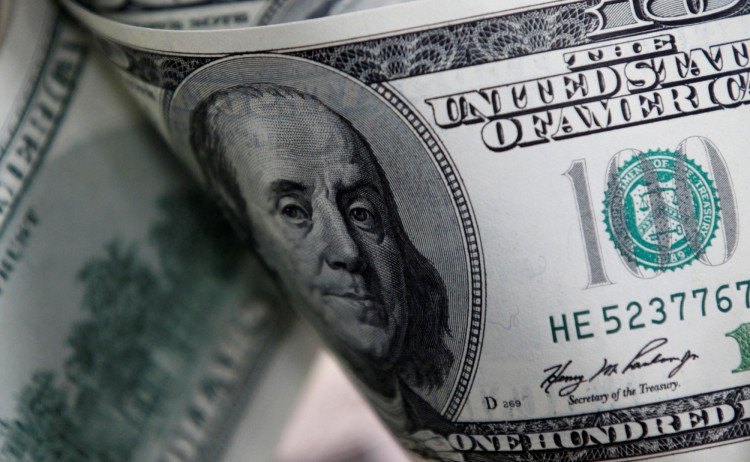The United States has reached a daunting fiscal milestone, with its national debt surpassing $34 trillion for the first time, signaling an alarming trend of burgeoning financial obligations. This escalation, documented by the Treasury Department, occurred just weeks ahead of critical deadlines for Congress to agree on new federal funding plans, raising the specter of potential government shutdowns and heightened economic uncertainty.
Maya MacGuineas, president of the Committee for a Responsible Federal Budget, lamented this record figure as "a truly depressing 'achievement,'" highlighting the peril it poses to both the economy and national security. The surge in national debt, particularly during a period of relative economic strength and low unemployment, contradicts the traditional fiscal strategy of curtailing the federal deficit during prosperous times.
The political implications are stark. The national debt has evolved into a battleground issue between Republicans and Democrats, exacerbating standoffs over federal budgets and threatening periodic government closures. With Republicans criticizing the Biden administration's spending programs as overly expensive and Democrats blaming GOP-backed tax cuts for diminishing revenue, the national debt's climb has been steep under both parties' watch.
The pandemic's impact, marked by costly federal Covid-19 relief packages under both Trump and Biden administrations, has also significantly contributed to the debt's rapid increase. Notably, White House spokesperson Michael Kikukawa pointed fingers at "repeated Republican giveaways skewed to big corporations and the wealthy," while proposing a reduction plan hinging on higher taxes for the affluent and trimming wasteful spending.
The national debt's growth has already led to consequences, such as Fitch downgrading the U.S.'s credit rating and Moody's signaling a similar move, reflecting growing skepticism about America's fiscal health. Lawmakers face imminent deadlines to pass fiscal year 2024 department budgets, with past stopgap funding bills only temporarily averting shutdowns.
Economist Kirk Elliot emphasized the gravity of the situation, comparing the annual interest payments on the national debt to the entire defense budget. As the U.S. Treasury Department reported a 39% surge in net interest costs in fiscal year 2023 compared to the previous year, the burden of servicing the debt has become increasingly challenging, complicating lawmakers' efforts to prioritize fiscal measures.
With interest payments reaching $2 billion a day and expected borrowing nearing $1 trillion by March's end, the Peter G. Peterson Foundation warns that within a decade, interest payments could surpass the combined federal spending on research and development, infrastructure, and education. This shift would fundamentally alter the government's allocation of resources, prioritizing debt servicing over critical investments in the nation's future.
As America's debt trajectory continues its unprecedented ascent, the need for a bipartisan approach to fiscal responsibility becomes ever more pressing. The country stands at a crossroads, with its economic stability and global standing at stake, requiring decisive action to stem the tide of debt and restore a sustainable financial path.






